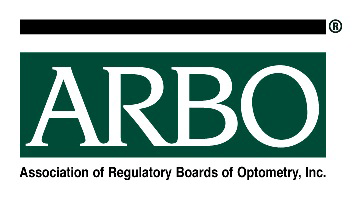February 1, 2018
What is the responsibility of a regulatory board member?
ARBO exists to serve its member boards and to reduce the burden on both your board and the government you serve. Fundamental to our responsibility as a regulatory board member is understanding the lines and boundaries between knowledge of the profession, professional advocacy and regulatory responsibility.
Optometrists are valuable as board members because of the thorough knowledge of the profession. However, most optometrists love what they do and love the profession, and it’s easy to blur the lines of responsibility between what’s best for the public we serve (regulatory) and what’s best for the profession (advocacy). As difficult as this may sometimes be, it is critical that we know the difference and wear the proper hat at the proper time.
So let’s go over some fundamentals.
Regulatory 101
What’s the point of regulation in our profession?
- To reduce the risk of public harm
- Regulation creates in law, a licensing and enforcement system
So what exactly do we do as an optometric regulatory board member?
- We enforce initial licensure standards by ensuring that new licensees have graduated from an accredited school of optometry, have successfully passed an accredited examination that tests entry level competence and experience and finally, are they of good moral character.
- We investigate complaints and enforce the Practice Act of our state or province.
- We investigate with the power to discipline practitioners who fail to meet the standards of practice and/or are accused of misconduct, incompetence, or incapacity.
- We establish and enforce rules for license renewal and continued competence.
- We are the guardians of public safety for the optometric profession – no small task and with great responsibility.
What are the characteristics of a good regulator?
- Works as a team player. Develops consensus among board members
- Devoted to the public welfare
- Objective and able to look at issues from various perspectives
- A good communicator
- Respectful, fair and honest
The Elevator Speech
(from Dale Atkinson’s talk at the Washington DC ARBO meeting in June 2017)
That roll-off-your-tongue explanation of what we do as regulators. You should know it by heart. It used to be “we protect the public” was the standard line, but that’s just not enough anymore to really capture the essence of what we do as regulators. We need to cover some more basic elements:
- Our regulatory board was created by statute
- The standards we follow are set forth in law, which includes statutes as well as rules and regulations
- We are delegated with the authority to enforce the laws, rules and regulations
- We are subject to appropriate government oversight
- We are authorized to promulgate rules and regulations
- AND….we protect the public.
So, if you put it all together…
“The optometry board is statutorily created and delegated with the authority to regulate the optometry profession in the interest of protecting the health, safety, and welfare of the public. With necessary oversight by government, the board enforces standards and criteria set forth in statute and adds specificity through the promulgation of regulations. The effectiveness and efficiencies of the board is enhanced by populating the board with a combination of consumer members as well as those with the expertise necessary to address the complexities of profession specific issues. An administrative regulatory system provides consumers with an assurance of the qualifications of licensees along with a means of enforcement for the benefit of the public.”
– Dale J. Atkinson, Esq.
